High-Level Policy Session 3 : Building confidence and security in the use of ICTs
WSIS
Session 139
In this digital age, trust is everything. Cybersecurity is crucial to ensuring universal, trustworthy, and equitable access to connectivity. While the use of information and communication technologies (ICTs) enables better management and increased productivity, the use of digital systems also generates risks. In fact, cyberthreats and cyberattacks give rise to ever-growing security challenges for both the public and private sectors in all countries. Enhancing cybersecurity and protecting critical information infrastructures are essential to every nation's social and economic development. Cybersecurity-related incidents can compromise the availability, integrity and confidentiality of information transiting on networks and disrupt the operations and functioning of critical infrastructure, digital and physical. They can also compromise the security of people and whole countries. [1]
[1] https://www.itu.int/en/mediacentre/backgrounders/Pages/role-of-ITU-in-building-confidence-and-trust-inthe-use-of-ICTs.aspx#cyberthreats
“Strengthening the trust framework, including information security and network security, authentication, privacy and consumer protection, is a prerequisite for the development of the Information Society and for building confidence among users of ICTs. A global culture of cyber-security needs to be promoted, developed and implemented in cooperation with all stakeholders and international expert bodies. These efforts should be supported by increased international cooperation. Within this global culture of cyber-security, it is important to enhance security and to ensure the protection of data and privacy, while enhancing access and trade. In addition, it must take into account the level of social and economic development of each country and respect the development-oriented aspects of the Information Society. While recognizing the principles of universal and non-discriminatory access to ICTs for all nations, we support the activities of the United Nations to prevent the potential use of ICTs for purposes that are inconsistent with the objectives of maintaining international stability and security, and may adversely affect the integrity of the infrastructure within States, to the detriment of their security. It is necessary to prevent the use of information resources and technologies for criminal and terrorist purposes, while respecting human rights.”
Geneva Declaration of Principles, https://www.itu.int/net/wsis/docs/geneva/official/dop.html
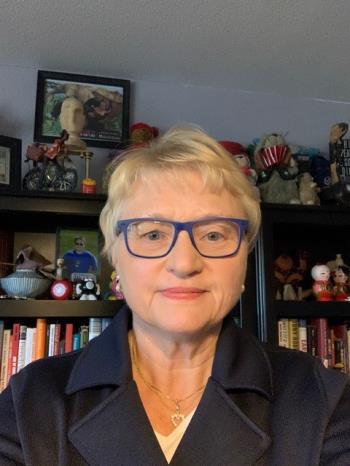

Preetam Maloor is the Head of the Emerging Technologies Division at the International Telecommunication Union (ITU), the specialized United Nations Agency for Information and Communication Technologies.
An accomplished international civil servant with more than two decades of experience in Technology matters, he is an expert on Artificial Intelligence and international cyber-related public policy matters. A UN Staff member since 2008, he has been a key member of the ITU Secretariat at several major conferences including the 2012 World Conference on International Telecommunications (WCIT), 2010, 2014, 2018 and 2022 ITU Plenipotentiary conferences, the 2009, 2013, and 2021 World Telecommunication/ICT Policy Forums (WTPF), and the annual AI for Global Good Summit. He also leads the Secretariat of the ITU Council Working Group on international Internet-related public policy issues and the Expert Group on the International Telecommunication Regulations.
Prior to joining ITU, Preetam spent nearly 10 years in the private sector, working primarily at Artificial Intelligence research organizations such as Intelligent Automation Inc, a Rockville, Maryland-based research think-tank focusing on AI-based applications, and at AT&T Research Labs, Florham Park, New Jersey in its Speech & Natural Language Research Group.
He holds Master’s degrees in Computer Science from Texas A&M University, College Station, and in Engineering and Public Policy from the University of Maryland, College Park. He has a Bachelor’s degree in Computer Science and Engineering from the University of Mumbai.
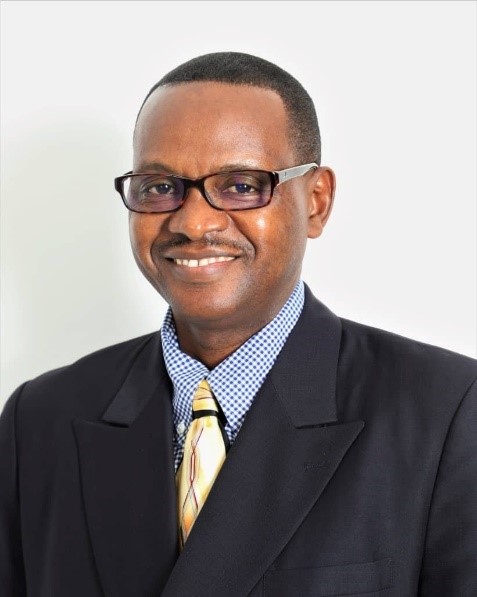
Hon. Ousman A. Bah is the Minister of Communications and Digital Economy of the Republic of The Gambia. He was appointed in June 2022 following the policy direction to decouple the then Ministry of Information and Communication Infrastructure into two (2) stand alone Ministries of Information and Communications and Digital Economy with the latter spearheading the digital transformation agenda of the country.
Hon. Bah comes with a wealth of academic training and more than 25 years of experience with major international companies and institutions based in the United States in the telecoms and tech related field. His experience includes working in various executive positions with institutions such as the AT&T, Bank of America and Worldpay. He also worked with PayU —a company in the Fintech Industry that is headquartered in San Francisco U.S. A., as a Global Relationship Executive, where he oversees up to twenty-two different countries around the globe, mostly located in some part of Europe, Latin America, South Africa, and Asia. Furthermore, he has created and lead several start-ups in the Silicon Valley and upon his return to the Gambia.
Hon. Bah has travelled extensively all over the world. His major interest since a young man has always been and remains working with technology to enrich the lives of people. Hon. Bah holds BSc. in Information Technology from the University of Phoenix, double Master’s, MSc. in Network & Systems Management and MBA. In Business Administration both from Golden Gate University in San Francisco.
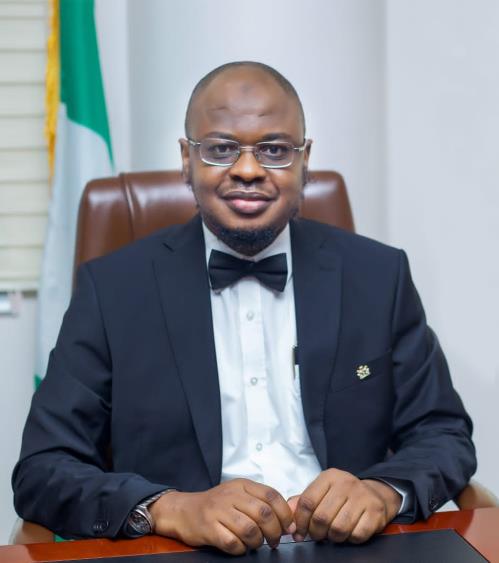
Prof. Isa Ali Ibrahim (Pantami) is the Minister of Communications and Digital Economy of the Federal Republic of Nigeria. Prior to his appointment as a Minister, he was the Director-General (DG)/Chief Executive Officer (CEO) of the National Information Technology Development Agency (NITDA). He serves as Chairman of several Presidential and Inter-Ministerial Committees. He has received over 150 awards, including the Award of Best Minister on multiple occasions. He lectured at universities for almost two decades and is currently a Professor of Cybersecurity at the Federal University of Technology, Owerri, Imo State. He is a Fellow of the Nigerian and British Computer Societies and is happily married with children.

H.E. Chaiwut Thanakamanusorn was appointed as the Minister of Digital Economy and Society in March 2021. As the Minister of MDES, he focuses on five key policies driving towards a more inclusive, safe, resilient, efficient, and sustainable society which are 1. Developing digital infrastructures 2. Promoting e - government services and the National Digital Identification 3. Promoting 5G infrastructure 4. Building trusted digital environment and 5. Protecting people from engaging in online crimes.
Prior to taking this position, he was the Executive Director of the Palang Pracharath Party. During 2009 – 2018, he served as an Executive at Gulf Energy Development Plc.
H.E. Chaiwut Thanakamanusorn received his bachelor’s degree in Engineering, Chulalongkorn University, Thailand. He then pursued his first master’s degree in Economics from Chulalongkorn University and the second one in Engineering from University of Southern California, United States.
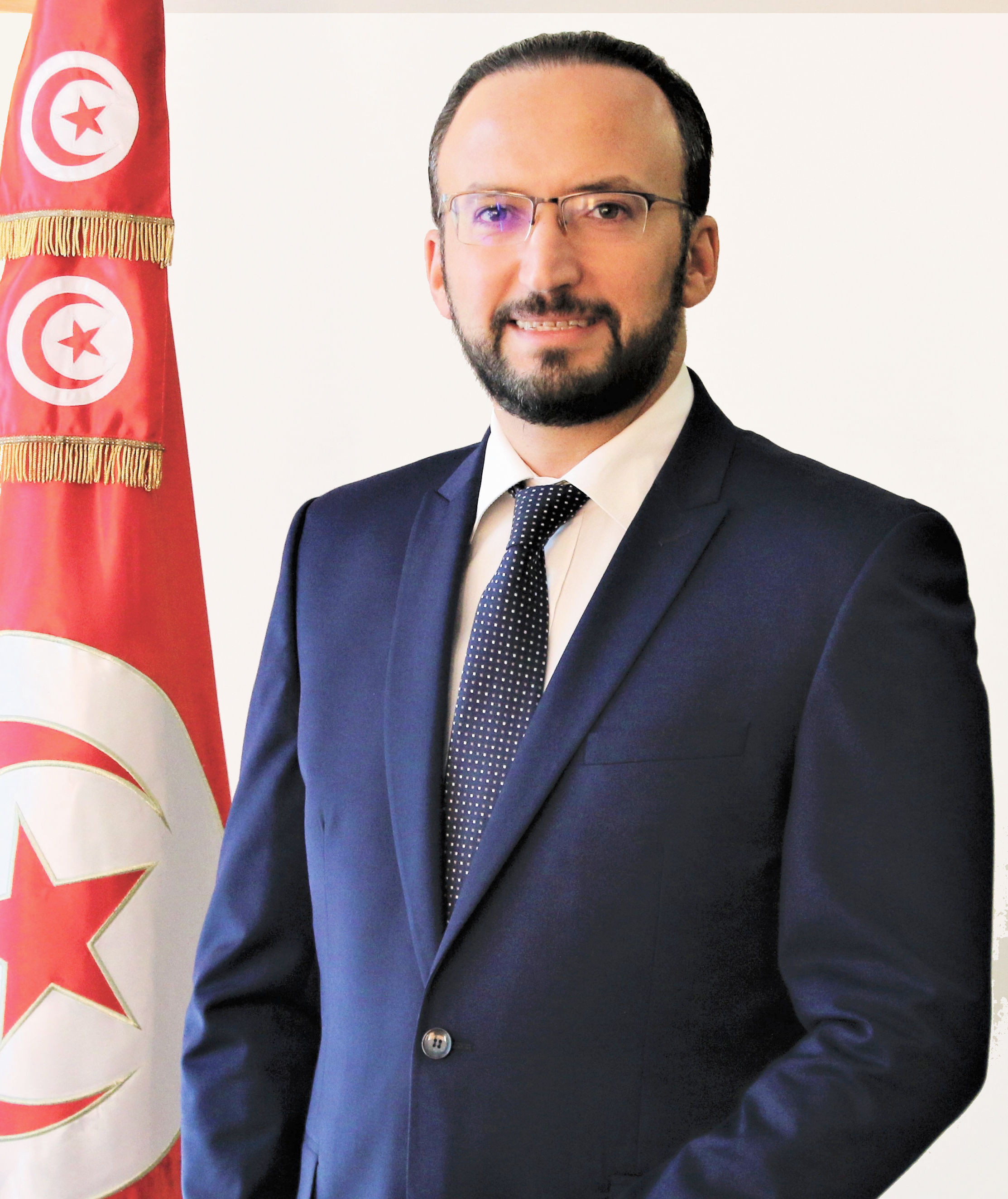_(1).jpg?maxwidth=500)
Nizar Ben Neji, Minister of Communication Technologies, is a Tunisian computer engineer and doctor in information and communication technologies, specializing in cybersecurity and cyber criminality with a special focus in his career on cryptography and PKI-related solutions. Recognized for his expertise in innovation and qualified by his rich international experience in the field of information and communication technologies, cybersecurity and cyber criminality, Dr.Ben Néji has been appointed in charge of the Ministry of Communication Technologies in Tunisia since August 2, 2021.
Nizar Ben Neji holds a Doctorate degree in Information and Communication Technologies from the Higher School of Communications of Tunis (Sup'com) of the University of Carthage and an engineering degree from the National School of Computer Sciences of Tunis (ENSI, part of Manouba University). He also performed postdoctoral scientific research at the University of Massachusetts Amherst in USA as Fulbright scholar.
Dr. Ben Néji started his career as a PKI engineer and later project manager at the Tunisian Government Certification Authority (ANCE) of the Ministry Communication Technologies in Tunisia and was a member of several National Steering committees and working groups in charge of supervising and conducting National IT and eGovernment projects. Dr. Ben Neji was actively involved as an expert at an international level with CTO (Commonwealth Telecommunications Organization), ITU (International Telecommunication Union) and AICTO (Arab Information and Communication Technology Organization) in delivering seminars in a wide variety of subjects related to cybersecurity and cyber criminality.
Since his arrival at the head of the Ministry of Information and Communication Technologies, Dr. Ben Néji has implemented a new digital transformation strategy that gave first promising results with citizen-oriented and valued-added services such as the Mobile ID to uniquely authenticate citizens online, the citizen portal to better serve citizens online, the citizen messaging system for official exchanges with the administration and many other building blocks that will improve the quality of the e-Government services in Tunisia.
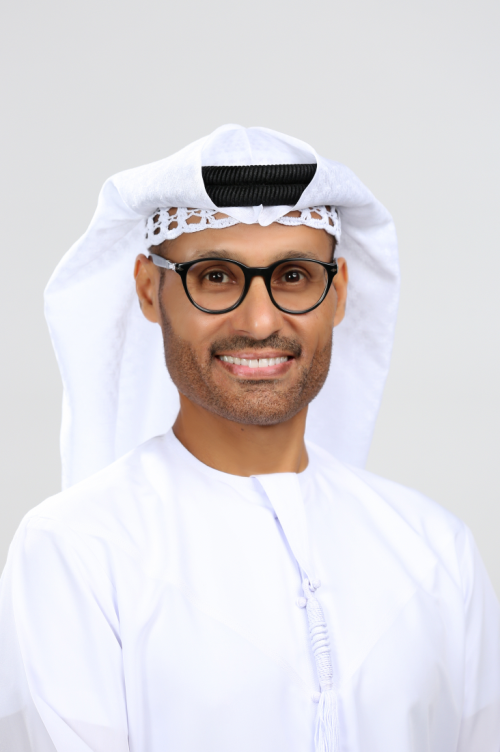
Dr. Al Kuwaiti has appointed into the Cabinet as the Head of the Cyber Security for the UAE Government since 2020. As the Head of the Cyber Security, his mandate includes being the Chairman of the UAE Cyber Security Council as well as Managing Director of the National Data Centre under the Supreme Council for National Security. As the Head of Cyber Security for the UAE Government by investiture, Dr. Al Kuwaiti has legal authority over all aspects pertaining securing the cyberspace for the entire Nation.
Dr. Al Kuwaiti has published numerous papers and keynoted at many conferences such as IEEE, RSA, Cyber Warfare Europe, Tele Strategies, ISS World MEA, IDEX, International Anti-Cyber Crimes Conference, Future War Summit etc., He is a highly sought after speaker internationally and have provided the main keynote address for more than 50 international, regional, and national cybersecurity events such as GITEX, GISEC and the World Government Summit, and had presented the UAE Cyber Security Framework at INTERPOL Global Cyberspace and Cybercrime Complex located in Singapore. Dr. Al Kuwaiti holds a Doctorate in Computer Engineering and Network Security from George Washington University in the U.S. and a master’s degree in Telecommunications and Computer Networks. He also holds a M.A. degree in International and Civil Security. Dr. Al Kuwaiti is an honorable member of Society of Engineers, IEEE Society, Golden Key National Honor Society and Computer Society. His research interests are detecting, monitoring and responding to cyber warfare, Network Forensics, Corporate Governance & Process, and national cyber policy.

Honourable Dr Jenfan Muswere assumed office as the Minister of Information Communication Technology, Postal and Courier Services in the Government of Zimbabwe in November 2019.
Before his ministerial appointment, he served as a Business and Investment Consultant, General Manager for Coal Brick Mine, General Manager for Pacstar Cement and Concrete and Head of Training, Business development and Technical for Hwange Coal Gasification Company.
Honourable Muswere holds several academic and professional qualifications, chief among them ,Communication Technology and Doctorate in Strategic Management and Business Leadership and a master’s degree in Business Administration with a major in international trade. He is a Qualified and certified Associate of the Institute of Personnel Management of Zimbabwe (IPMZ).
His vision is the transformation of Zimbabwe into a SMART nation through development of digital infrastructure, digital skills, ICT innovation and Industry growth.
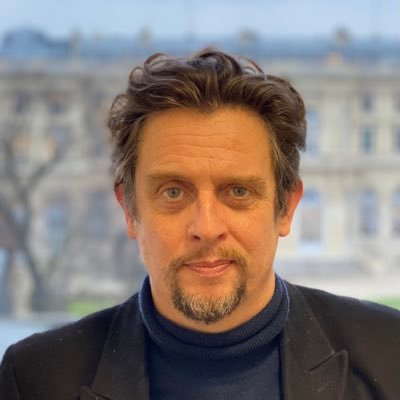
Henri Verdier, born in 1968, is the French Ambassador for Digital Affairs within the French Ministry for Europe and Foreign Affairs. Since 2018, he leads and coordinates the French Digital Diplomacy.
He previously was the inter-ministerial director for digital information and communications systems (DG DINUM) of France; and he was the director of Etalab, the French agency for public open data.
Mr Verdier is also an entrepreneur: he was the co-founder and CEO of MFG Labs, an internet-based startup involved in social data mining, and chairman of the board of Cap Digital, the French-European Cluster for Digital Content and Services, located in Paris. He is member of the ARCEP strategic committee, member of the CNIL strategic committee and also served as member of the board of ParisSorbonne University. In addition, Mr Verdier was the founding director of Edition Odile Jacob Multimedia, a publishing company in the field of e-learning and executive adviser for innovation at Lagardère Group as well as director of foresight at Institut Telecom.
He co-authored three books: in 2012, with Nicolas Colin, L'Age de la Multitude, Entreprendre et Gouverner Après la Révolution Numérique (The Age of Multitude, Entrepreneurship and Governance After the Digital Revolution), in 2017, with Pierre Pezziardi, Des Startup d’État à l’État plateforme ( From State Startups to the Platform State), and in 2022, with Jean-Louis Missika, Le Business de la haine : Internet, la démocratie et les réseaux sociaux ( The Business of Hate: Internet, Democracy and Social Networks ). Mr Verdier is a graduate of Ecole Normale Supérieure
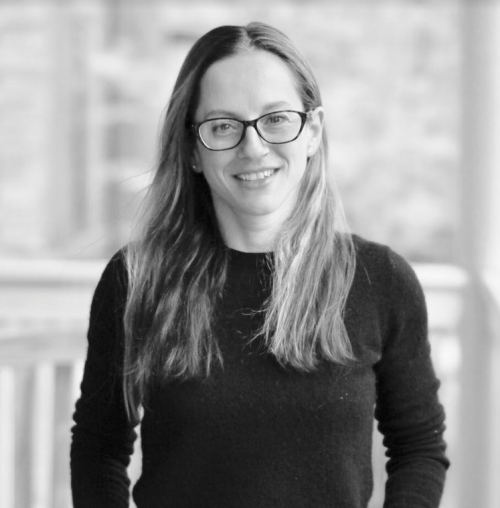
Dr Velislava Hillman occupies numerous roles. She is a Visiting Fellow at the London School of Economics and Political Science where she researchers, publishes work, and disseminates across conferences and convenings on the subject of education data, digitalised learning environments and the need for governance and oversight of the education technologies (EdTech) sector. Dr Hillman’s work broadly lies in education, policy, and governance with focus on the impact of data-intensive algorithmic systems on children’s learning, human rights and freedoms and teachers’ roles in educational systems.
Dr Hillman has been working with international organisations and research communities from New Zealand to Honk Kong, from Brazil to Bulgaria, and developed a comprehensive audit and evaluation framework to assess and benchmark EdTech companies, to ensure that minimum standards are met before their products enter schools and are used by children and young people. To bring cultural change and drive ethical practices in the growing EdTech industry, Dr Hillman has set up EDDS, Education Data Digital Sovereignty, the organisation through which she leads an independent team of international experts to provide comprehensive and external audits and assessment of EdTech operators and ensure that safe, privacy-preserving and human-rights respecting EdTech products are used in schools. Dr Hillman is an alumna of Berkman Klein Centre for Internet and Society, at Harvard University and a fellow of the National education Policy Centre at the University of Colorado, Boulder.
Additionally, Dr Hillman is a partner at Etoile Partners, a geopolitical consultancy which has worked on projects as diverse as in Bangladesh, Brazil, Chad, DRCongo, Egypt, El Salvador, France, Gaza, Germany, Ghana, Greenland, Haiti, Iceland, India, Japan, Kenya, Lebanon, Lesotho, Malaysia, Malta, Mozambique, Netherlands, Norway, Russia, South Africa, Spain, Sri Lanka, Sudan, Switzerland, Qatar, Turkey, UAE, UK, USA, Yemen, at the European Council in Brussels and at UNGA in New York. Through this organisation, Dr Hillman secured a successful HORIZON Consortium project on the development of enhanced cybersecurity and privacy preserving solutions in data transactions and computation.
Dr Hillman is also governor of a public school in the United Kingdom and a mother of three young children.
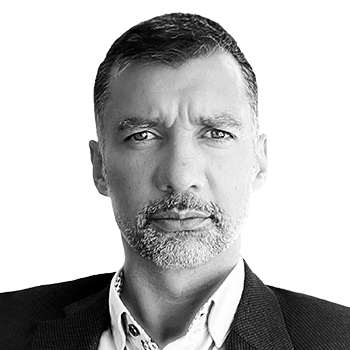
Stéphane Duguin has spent two decades analysing how technology is weaponized against vulnerable communities. In particular, he has investigated multiple instances of the use of disruptive technologies, such as AI, in the context of counter terrorism, cyber crime, cyber operations, hybrid threats, and the online use of disinformation techniques.
He leads the CyberPeace Institute with the aim of holding malicious actors to account for the harms they cause. His mission is to coordinate a collective response to decrease the frequency, impact, and scale of cyberattacks by criminal groups and state actors, and achieve cyber peace.
Stéphane Duguin sits on the Board of the Datasphere Initiative and is a member of the Advisory Board of the Global Forum on Cybercrime Expertise (GFCE). He is a thought leader in digital transformation and convergence of disruptive technologies. With his work published in major media, his expertise is regularly sought in high-level panels where he focuses on the implementation of innovative responses to counter new criminal models and large-scale abuses of cyberspace.
Prior to this position, Stéphane Duguin was a Senior Manager at Europol. He led key operational projects to counter both cybercrime and online terrorism, such as the European Cybercrime Centre (EC3), the Europol Innovation Lab, and the European Internet Referral Unit (EU IRU).

Prof. Salma Abbasi is the Founder, Chairperson and CEO of the eWorldwide Group which has been operating for 22 years. An international social enterprise focusing on science, technology and innovation, ethical applications of technology for inclusive and sustainable development, human resilience and cyber-safety, working with Governments, development agencies, civil society organizations and private sector to achieve the SDGs and a sustainable future for all. As the former Senior Vice President, Chief Quality Officer for Lucent Technologies, she has over 40 years’ experience in the field of technology, innovation and people centric design.
Prof. Abbasi is actively engaged as an advisory board member for several international organizations and Universities focusing in the space of global health for pandemic resilience, artificial intelligent systems for a sustainable future, digital transformation and resilience and is actively inspiring and supporting start-ups and entrepreneurship development.
She is also a member of a series of UN and IEEE committees, advocating and contributing to the development of new inclusive policies, industry standards and guidelines in the broader context of sustainable digital transformation, digital health, ethical AIS for humanity and social good and is leading the debate to address online safety, internet addiction from social media, gaming and gambling.
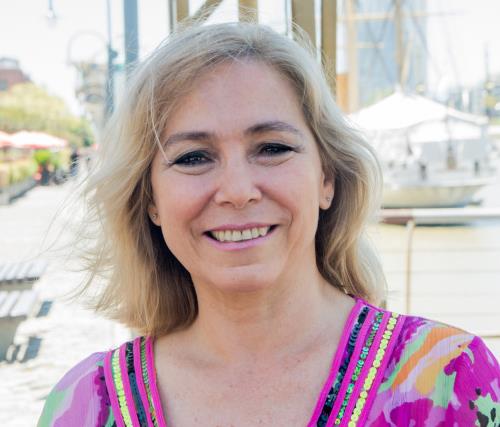
Olga Cavalli is an Internet leader whose work has been instrumental in promoting and increasing the participation of Latin America and the Caribbean in the Internet governance ecosystem.
She currently holds the position of Argentina National Director of Cybersecurity in the Secretariat of Public Innovation of the Chief of Cabinet of Ministers of the Presidency of Argentina. She previously held the position of Undersecretary of Information Technologies in the same Secretariat.
She is co-founder and academic director of the South School on Internet Governance and ARGENSIG, the Argentine School of Internet Governance.
She is co-editor of the book “Internet Governance and Regulations in Latin America”, the only one on Internet Governance in the region, free for the community and available in three languages: Spanish, Portuguese and English. Among her recent publications, she is the co-author of a chapter in the book “Power and Authority in Internet Governance”, where she describes the Role of States in Internet Governance at ICANN.
The German government invited her to participate in the IGF 2019 Berlin Promotional Video, which includes personalities such as Angela Merkel and Vint Cerf, among others. She is also a frequent contributor writing articles and book chapters on topics related to her areas of expertise.
Between 2016 and 2021 she was a member of the ISOC Global Board of Directors, ISOC Board of Trustees and a member of the ISOC Foundation Board of Directors. She was president of the ISOC Argentina Chapter (2015–2018).
Between 2007-2014 she was a member of the United Nations Secretary General's Advisory Group for the Internet Governance Forum's Multistakeholder Advisory Group, MAG.
At ICANN she was Vice Chair of the Government Advisory Committee (GAC), Council Member and vice chair of the GNSO and is currently a member of the ccNSO Council.
Olga is a professor at the University of Buenos Aires. Her education includes a PHD in Business Administration, a Master in Business Administration, a Master in Telecommunications Regulation, and a degree in Electrical and Electronic Engineering.
She is fluent in Spanish, English, Portuguese, and German, and can understand French and Italian.
Olga lives in Buenos Aires and is the mother of Juana and Federico.
-
 C5. Building confidence and security in use of ICTs
C5. Building confidence and security in use of ICTs
-
 Goal 1: End poverty in all its forms everywhere
Goal 1: End poverty in all its forms everywhere
-
 Goal 2: End hunger, achieve food security and improved nutrition and promote sustainable agriculture
Goal 2: End hunger, achieve food security and improved nutrition and promote sustainable agriculture
-
 Goal 3: Ensure healthy lives and promote well-being for all
Goal 3: Ensure healthy lives and promote well-being for all
-
 Goal 4: Ensure inclusive and equitable quality education and promote lifelong learning opportunities for all
Goal 4: Ensure inclusive and equitable quality education and promote lifelong learning opportunities for all
-
 Goal 5: Achieve gender equality and empower all women and girls
Goal 5: Achieve gender equality and empower all women and girls
-
 Goal 7: Ensure access to affordable, reliable, sustainable and modern energy for all
Goal 7: Ensure access to affordable, reliable, sustainable and modern energy for all
-
 Goal 8: Promote inclusive and sustainable economic growth, employment and decent work for all
Goal 8: Promote inclusive and sustainable economic growth, employment and decent work for all
-
 Goal 9: Build resilient infrastructure, promote sustainable industrialization and foster innovation
Goal 9: Build resilient infrastructure, promote sustainable industrialization and foster innovation
-
 Goal 10: Reduce inequality within and among countries
Goal 10: Reduce inequality within and among countries
-
 Goal 11: Make cities inclusive, safe, resilient and sustainable
Goal 11: Make cities inclusive, safe, resilient and sustainable
-
 Goal 16: Promote just, peaceful and inclusive societies
Goal 16: Promote just, peaceful and inclusive societies